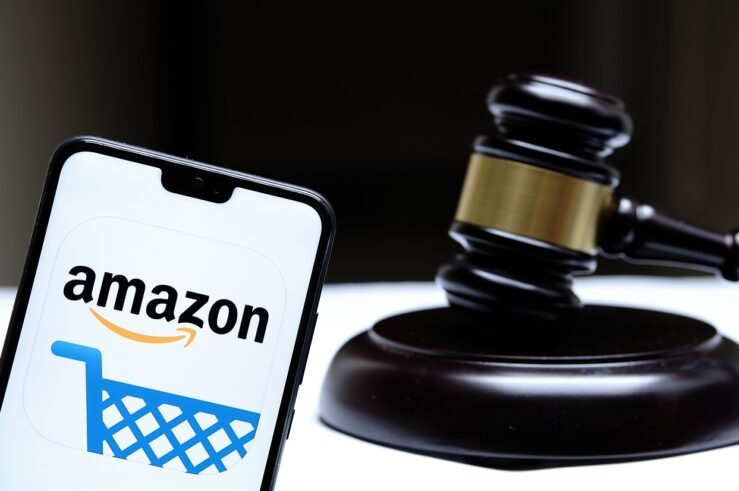Showing archive for: “MFNs”
Lessons from Korea’s Roller-Coaster Ride Toward Platform (Non)Regulation
The Korea Fair Trade Commission (KFTC), the nation’s competition authority, announced Sept. 9 that it had abandoned plans for comprehensive platform regulation modeled after the European Union’s Digital Markets Act (DMA) or Section 19a of Germany’s Competition Act. The proposed Korean regulation would have involved an ex-ante designation process, alongside stringent prohibitions. The KFTC noted ... Lessons from Korea’s Roller-Coaster Ride Toward Platform (Non)Regulation
The Law & Economics of the Capital One-Discover Merger
Capital One Financial announced plans late last month to acquire Discover Financial Services in a $35.3 billion deal that would give Capital One its own credit-card payment network, while simultaneously allowing the company to expand its deposit base, credit-card offerings, and rewards programs. Conversely, credit analysts like Matt Schulz of LendingTree note that “if Capital ... The Law & Economics of the Capital One-Discover Merger
FTC’s Amazon Complaint: Perhaps the Greatest Affront to Consumer and Producer Welfare in Antitrust History
“Seldom in the history of U.S. antitrust law has one case had the potential to do so much good [HARM] for so many people.” – Federal Trade Commission (FTC) Bureau of Competition Deputy Director John Newman, quoted in a Sept. 26 press release announcing the FTC’s lawsuit against Amazon (correction IN ALL CAPS is mine) ... FTC’s Amazon Complaint: Perhaps the Greatest Affront to Consumer and Producer Welfare in Antitrust History
Price-Parity Clauses: The Good, The Bad, and the…Anticompetitive?
Price-parity clauses have, until recently, been little discussed in the academic vertical-price-restraints literature. Their growing importance, however, cannot be ignored, and common misconceptions around their use and implementation need to be addressed. While similar in nature to both resale price maintenance and most-favored-nations clauses, the special vertical relationship between sellers and the platform inherent in ... Price-Parity Clauses: The Good, The Bad, and the…Anticompetitive?
Intermediaries: The Hero We Need?
In policy discussions about the digital economy, a background assumption that frequently underlies the discourse is that intermediaries and centralization always and only serve as a cost to consumers, and to society more generally. Thus, one commonly sees arguments that consumers would be better off if they could freely combine products from different trading partners. ... Intermediaries: The Hero We Need?
UK COURT OF APPEAL UPHOLDS FRAND INJUNCTION
Last week, the UK Court of Appeal upheld the findings of the High Court in an important case regarding standard essential patents (SEPs). Of particular significance, the Court of Appeal upheld the finding that the defendant, an implementer of SEPs, could have the sale of its products enjoined in the UK unless it enters into ... UK COURT OF APPEAL UPHOLDS FRAND INJUNCTION
Kolasky (2) on the Apple e-books case: Coordination, even horizontal coordination, isn’t per se illegal
Jon Jacobson in his initial posting claims that it would be “hard to find an easier case” than Apple e-Books, and David Balto and Chris Sagers seem to agree. I suppose that would be true if, as Richard Epstein claims, “the general view is that horizontal arrangements are per se unlawful.” That, however, is not ... Kolasky (2) on the Apple e-books case: Coordination, even horizontal coordination, isn’t per se illegal
Reed on the Apple e-books case: “We can remember it for you wholesale” – why the model matters in Apple e-books
In Philip K. Dick’s famous short story that inspired the Total Recall movies, a company called REKAL could implant “extra-factual memories” into the minds of anyone. That technology may be fictional, but the Apple eBooks case suggests that the ability to insert extra-factual memories into the courts already exists. The Department of Justice, the Second ... Reed on the Apple e-books case: “We can remember it for you wholesale” – why the model matters in Apple e-books
Hazlett on the Apple e-books case: The Apple case is a throwback to Dr. Miles, and that’s not a good thing
The Apple e-books case is throwback to Dr. Miles, the 1911 Supreme Court decision that managed to misinterpret the economics of competition and so thwart productive activity for over a century. The active debate here at TOTM reveals why. The District Court and Second Circuit have employed a per se rule to find that the ... Hazlett on the Apple e-books case: The Apple case is a throwback to Dr. Miles, and that’s not a good thing
Sagers on the Apple e-books case: Why does everybody hate competition so much?
United States v. Apple has fascinated me continually ever since the instantly-sensational complaint was made public, more than three years ago. Just one small, recent manifestation of the larger theme that makes it so interesting is the improbable range of folks who apparently consider certiorari rather likely—not least some commenters here, and even SCOTUSblog, which ... Sagers on the Apple e-books case: Why does everybody hate competition so much?
Balto on the Apple e-books case: Skip the (Apple) appetizer and get to the (McWane) main course
The “magic” of Washington can only go so far. Whether it is political consultants trying to create controversy where there is basic consensus, such as in parts of the political campaign, or the earnest effort to create a controversy over the Apple decision, there may be lots of words exchanged and animated discussion by political ... Balto on the Apple e-books case: Skip the (Apple) appetizer and get to the (McWane) main course
Hylton on the Apple e-books case: The central importance of the Court’s under-appreciated Business Electronics case
For a few months I have thought that the Apple eBooks case would find an easy fit within the Supreme Court’s antitrust decisions. The case that seems closest to me is Business Electronics v. Sharp Electronics, an unfortunately under-appreciated piece of antitrust precedent. One sign of its under-appreciation is its absence in some recent editions ... Hylton on the Apple e-books case: The central importance of the Court’s under-appreciated Business Electronics case










